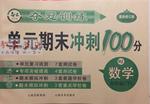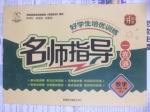题目内容
【题目】The term, culture shock, describes the anxiety produced when a person moves to a completely new environment. This term expresses the lack of direction, the feeling of not knowing what to do, and not knowing what is appropriate or inappropriate. The feeling of culture shock generally sets in after the first few weeks of coming to a new place.
We can describe culture shock as the physical and emotional discomfort one suffers when coming to live in another country or place. Often, the way that we lived before is not accepted as or considered as normal in the new place. Everything is different, for example, not speaking the language, not knowing how to use banking machines and so forth.
Although one can experience real pain from culture shock, it is also an opportunity for resetting one' s life objectives. It is a great opportunity for learning and acquiring new viewpoints. Culture shock can make one develop a better understanding of oneself.
Culture shock has many stages. The first stage is called the "honeymoon" stage. The new arrival may feel excited as everything is new.
In the second stage, a person may encounter some difficult times in daily life. For example, communication difficulties may occur such as not being understood. There may be feelings of discontent, anger, sadness, and feeling incompetence. This happens when a person is trying to adapt to a new culture. Transition (过渡) between the old methods and those of the new country is a difficult process and takes time to complete.
The third stage is characterized by gaining some understanding of the new culture. One may start to feel a certain psychological balance. The new arrival may start to have a feeling of direction and want to belong.
In the fourth stage, the person realizes that the new culture has good and bad things to offer. The person has a more solid feeling of belonging and starts to set goals for living.
The fifth stage is called the " re-entry shock". This occurs when a return to the
country of origin is made. One may find that things are no longer the same. For example, some of the newly acquired customs are not in use in the old culture.
Many factors (因素) contribute to the length and effects of culture shock. For example, the individual's state of mental health, type of personality, previous experiences, familiarity with the language, and level of education. So the five stages are present at different times and each person has their own way of reacting. 64. What do we learn about culture shock?
【1】What do we learn about culture shock?
A. It has negative effect on people.
B. Its effect can differ from person to person.
C. It disappears when people return to their homelands.
D. It can be avoided if one can understand the language.
【2】Which stage of culture shock is Tommy in?
Tommy moved to France with his parents two months ago.
But now he still can not get used to the life there.
He also has problems in schooling.
Even worse, he doesn't think anybody cares about him.
A. Stage 2. B. Stage 3. C. Stage 4. D. Stage 5.
【3】 The main purpose of the passage is to________
A. discuss and clarify B. argue and advise
C. introduce and explain D. compare and evaluate
【答案】
【1】B
【2】A
【3】C
【解析】
试题分析:文化冲击带来的影响是巨大的。当我们面对一个陌生的环境时,我们可能都会觉得不适应,不能理解周围有悖于自己认识的现象。那么如可让自己快速的融入新的环境、减少或消除文化冲击的不良影响呢?
【1】细节理解题。由最后一段里“For example, the individual' s state of mental health, type of personality, previous experiences, familiarity with the language, and level of education.”可知,文化冲击对人的影响受多重因素作用,个人因素就是其中之一。所以选B。
【2】推理判断题。由第五段“In the second stage, a person may encounter some difficult times in daily life.”可知,在第二阶段,人们在日常生活中会遇到麻烦。汤米在学校里不能适应,并且觉得没有人关心他,表明他现在的生活还是很不方便。所以选A。
【3】主旨大意题。文章先介绍了文化冲击(突然处于一个与前大不相同的社会和文化环境中,因而感到困惑、忧虑、烦恼的心情)的含义,并对其进行了阶段分类以加深人们的理解,因此是在介绍与解释。discuss and clarify讨论和澄清; argue and advise主张和建议; compare and evaluate比较和评价。所以选C。

 夺冠训练单元期末冲刺100分系列答案
夺冠训练单元期末冲刺100分系列答案 新思维小冠军100分作业本系列答案
新思维小冠军100分作业本系列答案 名师指导一卷通系列答案
名师指导一卷通系列答案